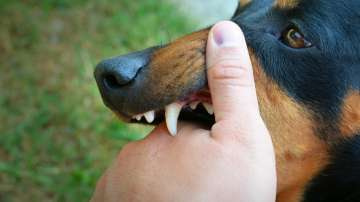Rabies is a dangerous and highly contagious viral disease that affects the central nervous system of mammals. It is commonly transmitted through the bite or saliva of an infected animal, but it can also be spread through contact with saliva or other bodily fluids of an infected animal. Vaccinations are available to protect against rabies, and individuals should be sure to get vaccinated if they are exposed to or have contact with any wild animals or strays. It is important for individuals to contact their doctor immediately if they suspect they have been exposed to rabies. Dr Neeraj Kumar Tulara - General Medicine & Infectious Disease Specialist, Dr. LH Hiranandani Hospital, Powai has explained the causes, symptoms, vaccine and treatments of rabies.
Causes:
Through the saliva of infected animals, rabies is predominantly transmitted. Dogs are the top rabies carriers around the world, spreading the virus via bites or scratches. Next to bats, other animals, such as raccoons and foxes, can also carry and transmit the virus.
Symptoms:
Typically, a duration of one to three months follows exposure, during which the stages of rabies symptoms set in. Fever and headache may appear, along with discomfort at the site of the bite or scratch, as early signs. As the virus advances, more intense symptoms emerge, including confusion, hallucinations, excessive salivation, swallowing problems, and muscle spasms. Neurological symptoms triggering rabies' almost always deadly outcome.
Vaccine:
To prevent rabies, both pre-exposure and post-exposure vaccinations are offered. Recommended for those likely to encounter rabies, pre-exposure vaccination is crucial for veterinarians and travellers. Following exposure to potentially rabid animals, vaccination is critical. The process includes administering a series of rabies shots to stimulate the immune system's defence.
Treatments:
Rabies symptoms are a near guarantee of death. Rabies exposure necessitates prompt medical intervention. The process of post-exposure prophylaxis, including wound care, vaccination, and rabies immune globulin injections when necessary, helps prevent the virus from advancing. After exposure, immediate treatment is essential.
